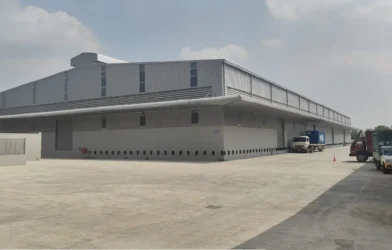Subtotal ₹0.00
The Federation of Hotel & Restaurant Associations of India (FHRAI) has urged Union Finance Minister Nirmala Sitharaman and the GST Council to rationalise GST rates for the tourism and hospitality sector, positioning it as a key driver of India’s economic growth under Vision 2047.
Welcoming the landmark GST reforms announced by the Prime Minister on August 15, FHRAI said a simplified regime would boost competitiveness, unlock the sector’s potential to double its nearly 5% contribution to GDP, and create large-scale employment, especially for youth and women.
With its strong multiplier effect, every rupee invested in hospitality yields ₹3.5 in output, while one direct job generates 3.2 indirect jobs.
Despite this strong potential, India’s current GST structure makes the tourism sector less competitive compared to its Asian peers. Countries such as Thailand, Indonesia, Vietnam, Sri Lanka, Singapore, and Malaysia operate under lower tax regimes, ranging between 6 and 10 per cent, which helps them attract significantly larger tourist inflows. In contrast, India’s higher GST structure reduces affordability and weakens its appeal for international travellers.
FHRAI has therefore emphasised the need for uniformity and simplicity in GST to make tourism services more accessible and globally competitive. It has recommended:
* A uniform GST rate of 5% with input tax credit across all hospitality and tourism services.
* Decoupling GST on food and beverage services from hotel room tariffs to eliminate inefficiencies and revenue losses.
* Regularising past GST payments on an “as is basis” to resolve demand notices from earlier ambiguities.
According to FHRAI, these measures will significantly improve the ease of doing business in the tourism and hospitality sector and will allow the industry to unlock its full potential. Rationalising GST would not only enhance competitiveness but also align India with global standards, thereby strengthening the country’s standing as a world-class tourism destination.
Commenting on the request, K. Syama Raju, President, FHRAI, said: “Tourism is not just about travel—it is a national growth engine with one of the highest multiplier effects in the economy. Rationalising GST is essential for making India globally competitive, affordable for travellers, and attractive for investors. With supportive policy measures, Indian tourism can double its contribution to GDP, create millions of jobs, and play a pivotal role in achieving the Government’s Vision 2047 of a developed India.”
Meanwhile a report by MP Financial Advisory Services said that India’s Vision 2047 aims to attract 100 million international tourist arrivals, a target expected to generate a GDP impact of ₹43.25 lakh crore and create 63 million jobs by 2034.
The report highlighted India’s rapid rise in global tourism rankings—from 39th to 8th within a single year—underscoring the country’s growing stature as a leading destination.
The study also noted the remarkable growth in foreign exchange earnings from tourism, which surged from ₹0.13 lakh crore in 1999 to ₹2.12 lakh crore in 2019. Although the pandemic caused a sharp decline to just ₹0.50–0.65 lakh crore in 2020–21, earnings rebounded swiftly, reaching ₹2.78 lakh crore by 2024, reflecting the sector’s resilience.














